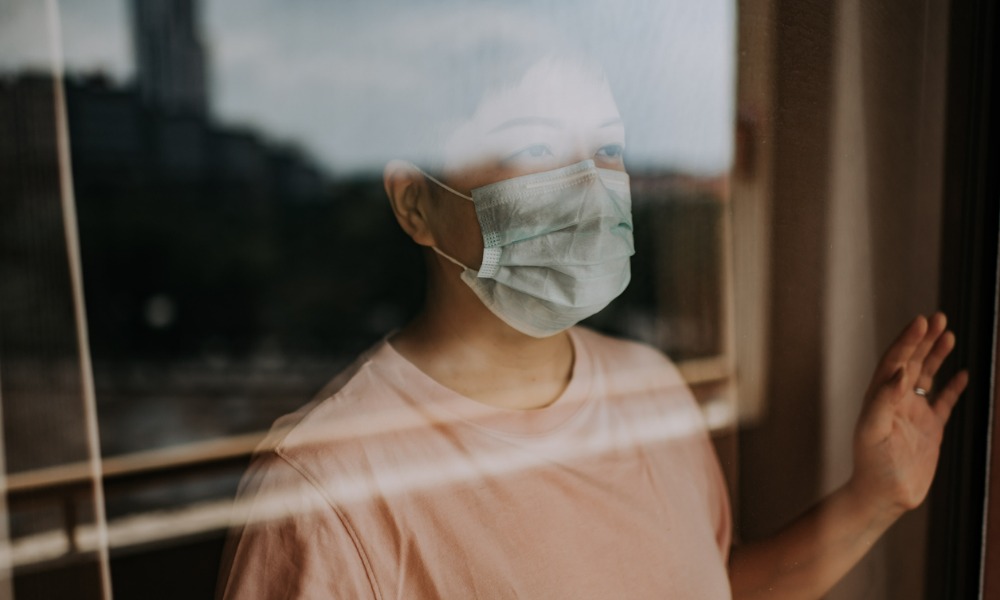
Dispute revolves around employer's discretion amid public health regulation

An Alberta labour arbitrator recently dealt with a dispute over a contract application and interpretation case regarding statutory holiday wage payment during the COVID pandemic.
The case dealt with the issue of whether employees who were self-isolating or in quarantine due to COVID exposure were entitled to statutory holiday pay. The employer believed they were not entitled, while the union argued they were. The decision ultimately depended on whether the employees were absent with company authorization or consent.
According to records, there were situations where employees were self-isolating or in quarantine due to COVID exposure and did not attend work on a statutory holiday and/or did not attend work the day before or the day after the statutory holiday.
The employer believed that employees who were not infected with COVID but were self-isolating under public health regulations were not entitled to receive statutory holiday pay if they did not work on the holiday or were absent the day before and/or the day after the holiday.
It argued that the company had not authorized or consented to their absence; instead, management had acknowledged that public health regulations prevented these employees from reporting to work.
On the other hand, the employees’ union argued that they were absent with “company authorization” as set out in their collective bargaining agreement (CBA) or were absent with “company consent” under employment standards legislation.
The union argued that the employees were “legally obligated” to follow public health regulations, and the company had directed them to do so. Therefore, they were entitled to holiday pay.
The union argued that holiday pay was a statutory right under Alberta’s Employment Standards Code, an earned benefit under the collective agreement (“CBA”), and part of the overall compensation package.
It argued that the employer “had indeed authorized the absence” by citing the holiday pay provisions of the Code, which entitled employees “to receive holiday pay unless an employee ‘is absent without the consent’ of the employer.”
It said the employer “had not merely given consent for the absence of the employees, but in fact, had instructed them to remain off work until the self-isolation and/or quarantine periods had expired.”
The employer argued that “the question of authorization was at the heart of the dispute.”
It gave the dictionary definitions of the word “authorize,” defined as “giving official permission” or “formally approve.”
In its submission, the employer said that “authorization, as well as consent, implies discretion – or making a decision to approve or not approve something.”
The employer said, “in the case of COVID, management could not exercise discretion.”
It said the company was “required by law to approve the absence of employees who had been exposed to COVID or had symptoms.”
The employer also said that it “had recognized the legal entitlement and obligation of such employees to stay away from work.” However, “it had not authorized or consented to the absence because it lacked the discretion to do so under the public health regulations.”
The company maintained that “abiding by public health regulations was not authorization under the CBA or consent under the Code.”
“It is true that in the context of COVID and the public health regulations, the employer had no choice but to prohibit employees who were required by law to self-isolate and/or quarantine from reporting to work,” the arbitrator said in its decision.
“However, it does not necessarily follow that just because such employees were required to stay away from work by government regulation that the absences could not also be considered authorized or with company consent,” it said.
“The question of authorization under the CBA and consent under the Code is a question of fact – what did the company do, or not do when faced with the COVID health care regulations affecting its employees,” it explained.
The arbitrator also noted that the employer “prepared its own protocols with respect to compliance and return to work and was actively involved in tracking the status of employees self-isolating and/or in quarantine.”
It even advised employees that it had “the final say for workers’ return to work.”
“Authorization must be interpreted to include instructing employees to self-isolate and/or quarantine under public health regulations and actively managing the period of work absence and the return to work,” the decision said.
Thus, it favoured the union’s position and ruled that relevant employees must be paid holiday pay on the public holidays that they were instructed by the employer to self-quarantine due to COVID symptoms.